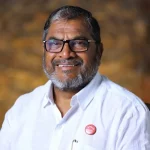New Delhi: India and Bangladesh on Friday held Foreign Office Consultations (FOC) in New Delhi and held discussions on a wide range of issues, including border and security, trade, commerce and connectivity, people-to-people ties, cooperation in water, power and energy sectors, and development cooperation in Bangladesh.
In the press release, the Ministry of External Affairs said, “Both sides held comprehensive discussions on a wide range of issues covering border and security, trade, commerce and connectivity, cooperation in water, power and energy sectors, people to people ties and development cooperation in Bangladesh. Both sides also exchanged views on sub-regional, regional and multilateral issues.”
India appreciated Bangladesh’s participation in the Virtual G20 Summit and the Voice of Global South Summit 2.0. For the meeting, the Indian delegation was led by Foreign Secretary Vinay Mohan Kwatra. The Bangladesh side was led by Foreign Secretary Masud Bin Momen.
The two sides agreed that the next Foreign Office Consultations (FOC) will be hosted in Bangladesh on a mutually convenient date. In the press release, MEA noted that Foreign Office Consultations is an institutional dialogue mechanism between the two Foreign Secretaries to review the entire gamut of bilateral relationships.
Taking to X, Ministry of External Affairs official spokesperson Arindam Bagchi stated, “India, Bangladesh FOC held in New Delhi today. Led by Foreign Secretary Vinay Kwatra & Foreign Secretary Masud Bin Momen of Bangladesh. They held productive exchanges on a diverse range of issues including border & security, economic ties & connectivity, power, water sharing, development cooperation and regional & multilateral issues.”
Earlier this month, External Affairs Minister S Jaishankar emphasised the significance of the bilateral relationship between India and Bangladesh, labelling it as a “model relationship” in the Indian subcontinent.
The EAM’s comments came in response to a question posed by Saida Muna Tasneem, Bangladesh’s High Commissioner to the UK, during a conversation hosted by the High Commission of India in London, titled “How a billion people see the world.”
The conversation took place at the Royal Over-Seas League Club and was moderated by journalist Lionel Barber. “I wanted to ask you that how important or integral Bangladesh is in India’s foreign policy, particularly in pursuing its security, regional connectivity, and shared prosperity,” questioned Saida Muna Tasneem.
In response, Jaishankar highlighted the collaborative efforts in restructuring the neighbourhood, citing substantial achievements in resolving territorial disputes.
“We have settled our land boundary with Bangladesh, which is really a very big deal. We had differences in our maritime boundary. We went for arbitration. So at the very least, it’s a very good example to some other regions and countries,” noted Jaishankar, emphasising the commitment to diplomatic solutions.
The EAM also acknowledged the transformative changes over the past decade, citing the inauguration of two rail lines and a power plant connecting India and Bangladesh. The strategic use of Bangladeshi ports for India’s northeast and the mutual benefits of energy supplies through pipelines further exemplifies the depth of the relationship.
“In the last ten years, we’ve had two rail lines between India and Bangladesh which were inaugurated. A power plant was inaugurated today. We are using Bangladeshi ports for our northeast. They are benefiting by more traffic coming through the ports.” Jaishankar added.
“So actually, today, India-Bangladesh relations stand out in the Indian subcontinent as a model relationship in terms of benefits of regional cooperation,” he said.
(With inputs from ANI)












